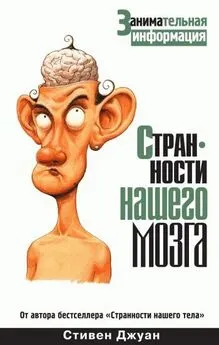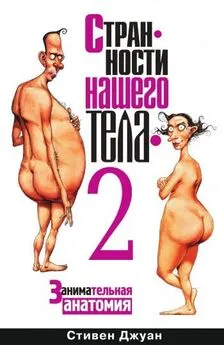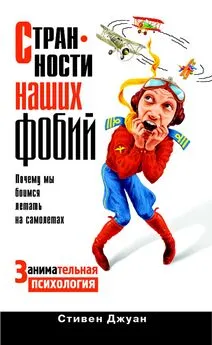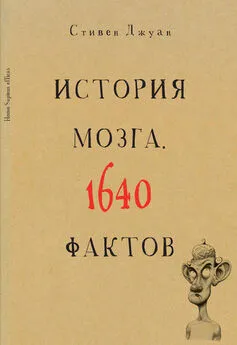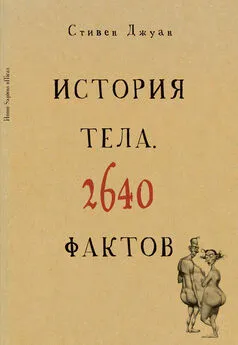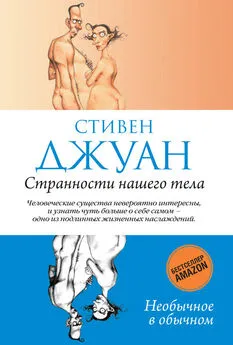Стивен Джуан - Могут ли поцелуи продлить жизнь?
- Название:Могут ли поцелуи продлить жизнь?
- Автор:
- Жанр:
- Издательство:Литагент «РИПОЛ»15e304c3-8310-102d-9ab1-2309c0a91052
- Год:2011
- Город:Москва
- ISBN:978-5-386-02692-9
- Рейтинг:
- Избранное:Добавить в избранное
-
Отзывы:
-
Ваша оценка:
Стивен Джуан - Могут ли поцелуи продлить жизнь? краткое содержание
Доктор Стивен Джуан – ученый-антрополог, автор мировых бестселлеров «Странности нашего тела» и «Странности нашего мозга». Родился и вырос в США, сейчас живет в Австралии, где преподает в университете и выступает на радио и телевидении. В новой книге доктор Джуан продолжает искать объяснение самым странным странностям нашей жизни.
Можно ли доверять детектору лжи?
Почему беременных тошнит по утрам?
Почему одних людей комары кусают чаще других?
Можно ли клонировать неандертальца?
Можно ли определить характер человека по его ушам?
Ответы на эти и другие вопросы вы найдете в этой книге.
Могут ли поцелуи продлить жизнь? - читать онлайн бесплатно ознакомительный отрывок
Интервал:
Закладка:
548
Drs S.M. Kassin, C. Meissner and R. Norwick are from the Department of Psychology at Williams College in Williamstown, Massachusetts.
549
S. Kassin et al., “I’d know a false confession if I saw one”: A comparative study of college students and police investigators’, Law and Human Behaviour, 2005, vol. 29, no. 2, pp. 211–227.
550
S. Juan, ‘What is a Confessing Sam?’, The Register, 1 September 2006.
551
J. Leckenby, Claims About the Power of Subliminal Advertising, Center for Interactive Advertising, University of Texas, Austin, 6 March 2006.
552
Drs Susan Crawley, C. French and S. Yesson are from the Department of Psychology at Goldsmith College of the University of London.
553
S. Crawley et al., ‘Evidence for transliminality from a subliminal card-guessing task’, Perception, 2002, vol. 31, pp. 887—92.
554
S. Juan, ‘Hidden messages and ESP’, National Post, 27 March 2006, p. 1.
555
P. Marks, ‘The lie-detector you’ll never know is there’, New Scientist, 7 January 2006, p. 22.
556
S. Juan, ‘Do lie detector tests really work?’, The Register, 16 June 2006.
557
S. Juan, ‘It would be a lie to say that it’s a lie-detector’, National Post, 6 November 2006, p. 1.
558
M. Huelsman et al., ‘Relation of religiosity with academic dishonesty in a sample of college students’, Psychological Reports, 2006, vol. 99, no. 3, pp. 739—42.
559
Drs M.K Johnson, S. Hashtroudi and D.S. Lindsay are from the Department of Psychology at Princeton University, New Jersey.
560
M. Johnson et al., ‘Source monitoring’, Psychological Bulletin, 1993, vol. 114, no. 1, pp. 3—28
561
Drs S. A. Perkins and E. Turiel are from the Department of Psychology at the University of California at Berkeley.
562
S. Perkins and E. Turiel, ‘To lie or not to lie: To whom and under what circumstances’, Child Development, 2007, vol. 78, no. 2, pp. 609—21.
563
S. Juan, ‘How honest are humans’, National Post, 17 April 2007, pp. 1–2.
564
R. Comer and J– Laird, ‘Choosing to suffer as a consequence of expecting to suff er: Why do people do it?’, Journal of Personality and Social Psychology, 1975, vol. 32, no. 1, pp. 92—101.
565
Drs Rebecca Curtis, Paul Smith and Robert Moore are from the Department of Psychology at Adelphi University in New York.
566
R. Curtis et al. ‘Suff ering to improve outcomes determined by both chance and skill’, Journal of Social and Clinical Psychology, 1984, vol. 2, no. 2, pp. 165–173.
567
Drs Roy Baumeister, Jean Twenge and Christopher Nuss are from the Department of Psychology at Case Western Reserve University in Cleveland.
568
R. Baumeister et al., ‘Effects of social exclusion on cognitive processes: Anticipated aloneness reduces intelligent thought’, Journal of Personality and Social Psychology, 2002, vol. 83, no. 4, pp. 817–827.
569
Drs T.B. Kashdan, J. Elhai and B. Frueh are from the Department of Psychology at George Mason University in Virginia.
570
T. Kashdan et al., Anhedonia and emotional numbing in combat veterans with PTSD’, Behaviour Research and Therapy, 2006, vol. 44, no. 3, pp. 457–467.
571
R. Campbell, Campbell’s Psychiatric Dictionary, Oxford University Press, New York, 2004, p. 40.
572
Dr Ayala Malach-Pines is a psychologist at Ben-Gurion University in Beersheba, Israel.
573
A. Malach-Pines, Romantic Jealousy: Causes, Symptoms, Cures, Routledge, London, 1998, p. 102.
574
Dr Salman Akhtar is from the Jeff erson Medical College in Philadelphia.
575
S. Akhtar, ‘Forgiveness: Origins, dynamics, psychopathology, and technical relevance”, Psychoanalytic Quarterly, 2002, vol. 71, no. 2, pp. 175—12.
576
Dr David Lotto is from the University of Massachusetts School of Medicine in Boston.
577
D. Lotto, ‘The psychohistory of vengeance’, Journal of Psychohistory, 2006, vol. 34, no. 1, pp. 43–59.
578
Dr Anthony N. G. Clark is a psychologist from Brighton in the UK.
579
Personal communication, 4 March 2005.
580
S. Juan, ‘What cultures don’t share Western economic values?’, The Register, 16 June 2006.
581
Dr W. E. Addison is from the Department of Psychology at Eastern Illinois University in Charleston.
582
W. Addison, ‘Beardedness as a factor in perceived masculinity’, Perceptual and Motor Skills, 1989, vol. 68, pp. 921–922.
583
Drs Michael Shannon and C. Patrick Stark are from the Department of Psychology at Western State College in Gunnison, Colorado.
584
M. Shannon and C. Stark, ‘The infl uence of physical appearance on personnel selection’, Social Behaviour and Personality, 2003, vol. 31, no. 6, pp. 613–623.
585
Drs A. A. de Souza, V. B. Baiao and E. Otta are from the Department of Experimental Psychology at the University of Sao Paulo in Brazil.
586
A. de Souza et al., ‘Perception of men’s personal qualities and prospect of employment as a function of facial hair’, Psychological Reports, 2003, vol. 92, no. 1, pp. 201—08.
587
S. Juan, Aching heads’, New York Daily News, 10 May 2005, ‘The Odd Body”, pp. 1–2.
588
Dr Roy Baumeister, J. Twenge and K. Catanese are from the Case Western Reserve University, Ohio.
589
J. Briggs, ‘I.Q. bruised as ego battered’, Psychology Today, August 2002, p. 42.
590
S. Juan, ‘Women warmer at the core’, National Post, 6 February 2006, pp. 1–2.
591
Drs O. Egger and M. Rauterberg are from the Swiss Federal Institute of Technology in Lausanne, Switzerland.
592
O. Egger and M. Rauterberg, Internet Behaviour and Addiction, Swiss Federal Institute of Technology, Lausanne, 1996.
593
Dr K.S. Young is from the Department of Psychology at the University of Pittsburgh at Bradford, Pennsylvania.
594
K. Young, ‘Internet addiction: The emergence of a new clinical disorder’, Cyber Psychology and Behaviour, 1996, vol. 1, no. 3, pp. 237–244.
595
S. Juan, ‘Could you be addicted to the internet?’, The Register, 22 September 2006.
596
H. Phillips, ‘Just can’t get enough’, New Scientist, 26 August 2006, pp. 30–35.
597
Dr Andrew Scholey is a psychopharmacologist at the University of Northumbria in Newcastle, UK.
598
R. Edwards, ‘All in the mind?’, New Scientist, 29 April 2000, p. 19.
599
S. Juan, ‘Can you become intoxicated by the power of suggestion?’, Epoch Times, 26 September 2006.
600
Drs M. S. Vos and J. C. de Haes are from the Department of Psychiatry at the Bronovo Hospital in The Hague, The Netherlands.
601
M. Vos and J. Haes, ‘Denial in cancer patients, an explorative review’, Psycho-Oncology, 2007. vol. 16, no. 1, pp. 12–25, Epub 25 July 2006.
602
S. Juan, ‘Why are people so often in denial?’, The Register, 29 September 2006.
603
Dr Marcelo Suarez-Orozco is from the Department of Anthropology at the University of California at San Diego.
604
Dr G.C. Gauchard, J. Muir, C. Touron, L. Benamghar, D. Dehaene, P. Perrin and N. Chau are from the WHO Collaborative Centre in the Faculty of Medicine at the Henri Poincare University in Nancy, France.
605
Professor Ivan Robertson and colleagues are from the Institute of Science and Technology at the University of Manchester, UK.
606
C. Martin, ‘He spent life picking himself up’, The Denver Post, 23 September 2006.
607
S. Juan, ‘What type of person is accident-prone?’, The Register, 20 October 2006.
608
Dr Dale Larson is from Santa Clara University and Dr R.L. Chastain is from Samuel Merritt College in Oakland, California.
609
D. Larson and R. Chastain, ‘Self-concealment: Conceptualisation, measurement, and health implications’, Journal of Social and Clinical Psychology, 1990, vol. 9, pp. 439–455.
610
Dr J. W. Pennebaker is from the Department of Psychology at the University of Texas in Austin.
611
J. Pennebaker, Opening Up: The Healing Power of Expression Emotion, Guilford, New York, 1997.
612
Drs C. E. Hill. C. Gelso and J. Mohr are from the University of Maryland at College Park.
613
C. Hill et al., ‘Client concealment and self-presentation in therapy: Comment on Kelly (2000)’, Psychological Bulletin, 2000, vol. 126, pp. 495–500.
614
Drs Anita Kelly and Jonathan Yip are from the Department of Psychology at the University of Notre Dame in South Bend, Indiana.
615
A. Kelly and J. Yip, ‘Is keeping a secret or being a secretive person linked to psychological symptoms?’, Journal of Personality, 2006, vol. 74, no. 4, pp. 1349–1370.
616
Dr Marie Hartwell-Walker is clinical director of the Adult Outpatient Services Program of the Community Mental Health Centre of Western Massachusetts in Springfi eld.
617
R. Campbell, Campbell’s Psychiatric Dictionary, Oxford University Press, New York, 2004, pp. 328, 497.
618
S. Juan, ‘Which comes first: Imagination or fantasy?’, The Register, 19 May 2006.
619
T. Cassidy, ‘3—ear-old girl has died 35 times!’, Weekly World News, 4 August 1998, p. 24.
620
Dr J.B. Stephenson is from the Royal Hospital for Sick Children in Glasgow, Scotland.
621
J. Stephenson, ‘Refl ex anoxic seizures (“while breath holding”): Nonepileptic vagal attacks’, Archives of Disease in Children, 1978, vol. 53, no. 3, pp. 193–200.
Читать дальшеИнтервал:
Закладка:


